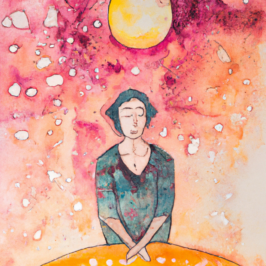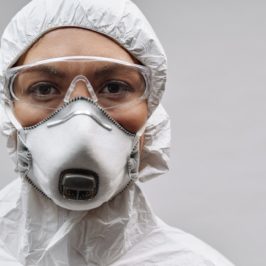
By: Jared Moskowitz
Coronavirus had many effects on us such as health and financial concerns, but few considered the effects that coronavirus would have after life got back to normal and the health risks became less serious. I am specifically referring to the development of social anxiety or the worsening of symptoms from a previous social anxiety diagnosis.
There are so many daily social activities which we have been used to pre-COVID, like meeting up with friends, talking to colleagues, and attending social events. We have grown accustomed to being more lonely and less social. Going back to normal life has been quite difficult for many.
For those with a pre-existing social anxiety diagnosis, they may have experienced a certain level of relief after being encouraged to keep in-person interactions to minimal. However, what they likely didn’t know was that they were further reinforcing their behaviors of avoiding social contact by minimizing the amount the social contact they were willing to tolerate. Similarly, individuals who developed social anxiety symptoms as a result of quarantines and isolations were likely to develop a fear of social interactions as they became accustomed to minimal in-person reactions. Think of it like this; if we suddenly decided to increase the number of social interactions, we would find it pretty daunting as well.
When interacting virtually, the human body doesn’t necessarily feel the conversation as a normal social interaction. It is possible to suggest that someone with social anxiety may even find it easier to talk in a virtual setting than in-person.
A powerful technique in working to decrease symptoms of social anxiety is called systematic desensitization. Basically, it’s a gradual process starting with mere thoughts about the fear that bring out anxiety symptoms. From that point, you would be continuing processing and imagining the specific fear until you notice the anxiety symptoms decreasing. Following this, you would then even meet up with a friend for a short amount of time. After that, you would increase the frequency and duration until your symptoms are tolerable or diminished. The key here is to start off slowly and slowly increase exposure to anxiety-provoking situations.
Another helpful option is mindfulness. Mindfulness is very effective in being able to calm one’s body and ground themselves to reality. Guided meditations are a helpful way to calm anxiety symptoms and make one feel more at ease. It’s a great technique because it can be incorporated into so many different areas of our daily life. Mindfulness comes in many different forms, ranging from being mindful to our breaths to meditations. Some great resources for mediations are the apps Calm and Headspace.
Whatever treatment process you go for, it is really important to have self-compassion by remembering that it’s totally fine that this happened to you and accepting the fact that this is your new reality. Of course, it’s hard but remember that the process is a tremendous growth opportunity and a way to enhance life in ways which you didn’t even know existed.
Although it’s possible to become in shape through working out by yourself, it’s much easier and effective to have a personal trainer who can ensure the work is being done appropriately and in the best ways possible. Similarly, in therapy, one can employ such methods and techniques on their own but to be able to truly receive proper and effective treatment one would need a therapist. Consider the Resource Group!
DISCLAIMER
The information, including but not limited to, text, graphics, images and other material contained on this website are for informational purposes only. No material on this site is intended to be a substitute for professional medical advice, diagnosis, or treatment. Always seek the advice of your physician or other qualified healthcare provider with any questions you may have regarding a medical condition or treatment and before undertaking a new health care regimen, and never disregard professional medical advice or delay in seeking it because of something you have read on this website.






